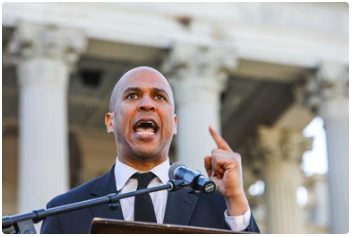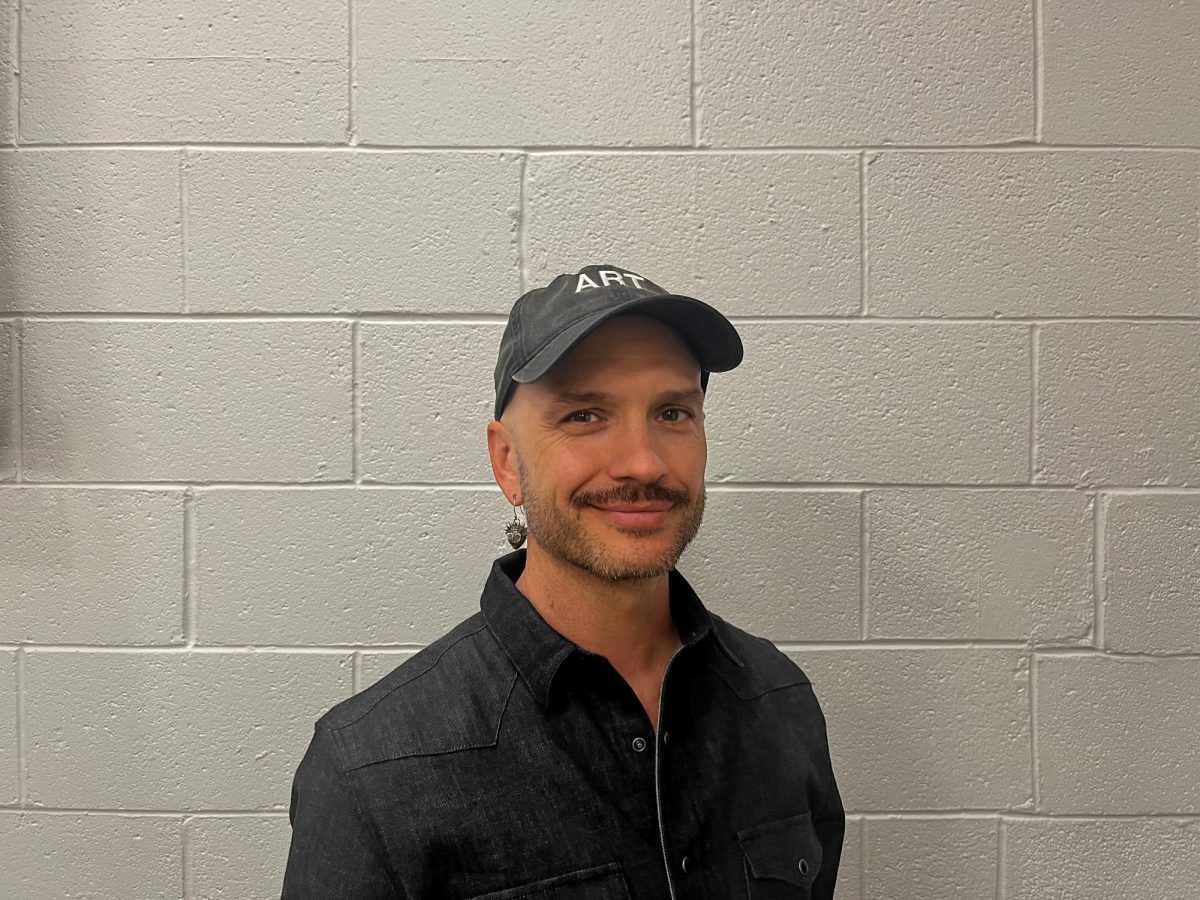From March 31st through April 1, 2025, New Jersey Senator Cory Booker made headlines with an historic 25 hour and 5 minute speech, breaking the record previously held by Strom Thurmond for the longest single speech in Senate history. While the sheer length of the speech garnered attention, it was the message and symbolism behind Booker’s action that sparked widespread discussion. Teachers and political observers have shared varied perspectives on the significance of this moment.
Marissa Colston, a teacher who weighed in on Booker’s action, praised the senator for using his platform as a form of “nonviolent direct action.” She explained that such actions are meant to amplify voices and perspectives that are often overlooked.
“I think any time somebody does an action like that, it’s going to gain more attention which is the point,” Colston said. “There are many different ways people can be involved… Doing something like that is to draw attention and to try to have more people look and listen.” According to Colston, Booker’s speech was an intentional effort to spark change, emphasizing that it takes many “small courageous acts” to create larger shifts in society. Colston commended Booker for his courage, adding, “It’s not easy what he did. It’s courageous.”
Teacher Jonathan Ogle also recognized the significance of Booker’s speech, noting that the senator’s oratory skills played a key role in its impact. Ogle, who is familiar with Booker’s ability to communicate powerfully, pointed out that such performances play to Booker’s strengths as a speaker.
“Cory Booker has, in my experience, always been a really good orator and that kind of performance really plays to his strengths,” Ogle said. He further emphasized the importance of visibility in today’s political climate, where many Democrats are looking for strong leaders who are vocal about their beliefs.
“I think it creates a visibility that can potentially get some attention,” Ogle explained, recognizing how this act of defiance could rally support and spark public discourse on critical issues.
Ken Wells, another teacher, offered his thoughts on the symbolic nature of Booker’s record-breaking speech. Wells agreed that the act of breaking the Strom Thurmond record was symbolically important. However, he expressed concern about the overall effectiveness of such speeches in achieving meaningful legislative change.
“Personally, I don’t think that sort of speech should be part of how our government works, I think it’s kind of silly,” Wells said.
Despite his skepticism about the impact of the speech on policy, Wells acknowledged the importance of challenging norms, especially in the current political environment.
“I think the past decade has seen the right wing and conservative politicians break down norms when they want something, and it’s been maddening to see people on the left saying things like ‘We can’t fight in this way because it’s not following the rules as exactly written.’ The other side just does whatever it wants,” Wells noted.
For Wells, Booker’s speech was a symbol of a shift in how politicians on the left might start to fight back against the erosion of norms and push for their ideals more forcefully.
All three educators—Colston, Ogle, and Wells—agreed on one thing: Booker’s speech had symbolic power. Whether one views it as an effective political strategy or not, its purpose was clear: to draw attention to important issues and create visibility for causes that might otherwise go unheard. Colston highlighted the broader importance of such actions.
“I think it’s going to take lots of small actions to really make a big change, but I think this is part of it,” Colston said.

















